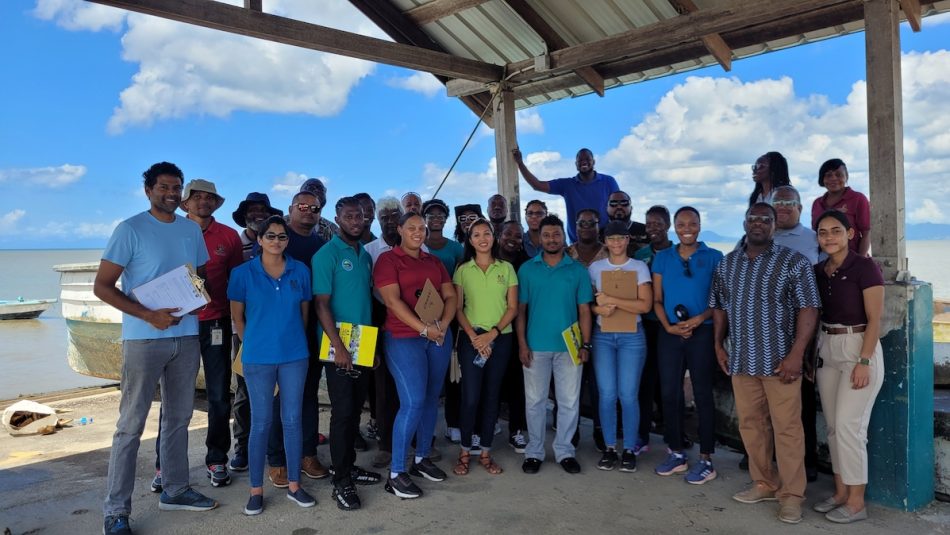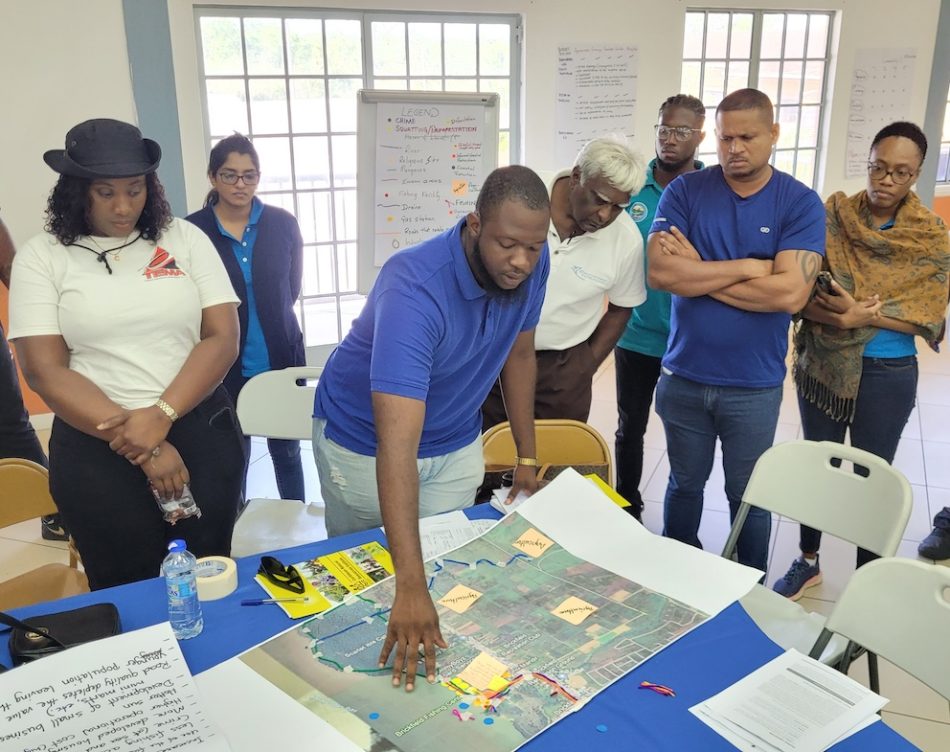CANARI conducts training on assessing coastal communities’ vulnerability and building resilience in Trinidad and Tobago

Government, private sector and civil society representatives on field trip on Day 2 of the training workshop. Credit: CANARI
Port of Spain, November 22, 2023 – Coastal communities in Trinidad and Tobago are facing growing challenges from sea level rise, coastal erosion and extreme weather events due to climate change and related disasters. Under the project, “Integrating digital technologies and participatory tools to support coastal community resilience in Trinidad and Tobago (Tech4CoastalResilience)”, a two-day workshop was held in Waterloo, Trinidad from October 30-31, 2023, to build the capacity of coastal resource managers and users to design and implement climate vulnerability assessments at the community level.
The workshop brought together over 25 representatives from key government, private sector and civil society organisations in Trinidad and Tobago, including national fisheries authorities, coastal management agencies, fisherfolk and community- based organisations, for training to: enhance understanding of vulnerability; the importance of climate vulnerability assessments; how to design the process; and apply selected tools to capture local knowledge and perspectives on climate change impacts, vulnerabilities and priorities for adaptation and building resilience at the community level.
It was facilitated by the Caribbean Natural Resources Institute (CANARI) in partnership with the Fisheries Division, Ministry of Agriculture, Land and Fisheries and the Department of Marine Resources and Fisheries, Tobago House of Assembly under the Tech4CoastalResilience project. The project aims to improve the technical capacity and resources of coastal communities and key management agencies to use innovative technologies and tools to address data gaps and enable a more inclusive and informed approach for building resilience. The project is supported by the “Harnessing Innovative Technologies to Support Resilience Settlements on the Coastal Zones of the Caribbean (HIT RESET Caribbean)” programme. HIT RESET Caribbean is funded by the ACP Innovation Fund, OACPS Research and Innovation Programme, which is implemented by the Organization of African, Caribbean and Pacific States (OACPS) and financed by the European Union (EU).
On day 1, participants were introduced to the concept of vulnerability and its various dimensions, the process and key steps for designing and conducting a climate vulnerability assessment for coastal communities, and provided an overview of selected tools to apply for a holistic assessment including participatory geographic information systems (P-GIS).
Day 2 included a field trip to fish landing sites in Brickfield, Orange Valley and Waterloo and nearby communities to better understand the local context and key climate-related issues and practical application of the selected tools for conducting vulnerability assessments with coastal communities.


Workshop participants presenting P-GIS map of Waterloo community created to pilot application of assessment tools. Credit: CANARI
Following the training workshop, the trainees will form local field teams and support climate vulnerability assessments across five coastal communities, including Carli Bay, Matelot and Mayaro in Trinidad and Castara and Scarborough in Tobago. The findings from these assessments will inform. further work under the Tech4Coastal Resilience project to identify priorities for action and build coastal resilience.
For more information on HIT RESET Caribbean and this project, see: https://canari.org/technologies-4-resilience-tt/





